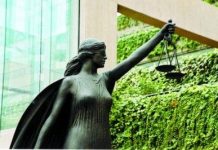
THE World Sikh Organization of Canada has welcomed the decision of the Supreme Court of Canada in the landmark case of Loyola High School, et al. v. Attorney General of Quebec. This case deals with the right of a Catholic school to teach the Christianity portion of the mandatory Ethics and Religious Culture (ERC) curriculum, from a faith-based perspective.
In a decision released Thursday, the Supreme Court of Canada allowed the appeal and set aside the minister’s decision, holding that “Loyola, as a religious organization, is entitled to the constitutional protection of freedom of religion. The communal character of religion means that protecting the religious freedom of individuals requires protecting the religious freedom of religious organizations, including religious educational bodies such as Loyola.”
The WSO was granted intervener status in the case by the Supreme Court of Canada to present arguments on the question of whether religious freedoms for a collective/corporate body are protected under the Canadian and the Quebec Charters and on the larger question of the meaning of ‘secularism’ in the Canadian context.The WSO said it was pleased that the court agreed with their position.
Loyola High School is a private Roman Catholic institution in Quebec which was denied the right to teach the Christianity portion of the ERC course from a faith-based perspective. Rather, the Government of Quebec had ordered Loyola to teach the province’s ERC course in a secular and “neutral” manner. Although the Quebec Superior Court found that the provincial government violated the school’s right to freedom of religion as guaranteed by the Quebec Charter of Human Rights and Freedoms, the Quebec Court of Appeal overturned the decision.
The case was heard by the Supreme Court of Canada on Monday, March 24, 2014, where WSO general legal counsel Palbinder Kaur Shergill presented oral arguments on behalf of the organization. The WSO took the position that Loyola should be granted the exemption it was seeking and allowed to teach the ERC course from its faith based perspective.
WSO President Dr. Amritpal Singh Shergill said: “We are glad to see that the Supreme Court of Canada has upheld a broad interpretation of freedom of religion. This decision will help to ensure that religious minority groups in Canada are protected from government interference in their internal functioning. Although this case touched specifically on a Catholic high school, the implications of this case were far-reaching and also touch upon the functioning of Sikh institutions such as gurdwaras and Khalsa Schools. Furthermore, at a time where the definition of ‘secularism’ in Canadian society is up for debate, this decision reinforces the fact that secularism is about equality and the neutrality of the state towards religion and not about limiting freedom of religion. We are glad that Court was able to hear the perspective of the Sikh community on this important issue.”
The WSO was the only non-Christian group to be granted intervener status in the Loyola case. This was the third time the WSO has appeared before the Supreme Court of Canada and the second time in a case involving a non-Sikh appellant. In 2004, WSO intervened in Syndicat Northcrest v. Amselem, in support of the Jewish community’s rights to religious freedom, and in 2005, WSO intervened in Multani v. Commission scolaire Marguerite‑Bourgeoys with respect to the right of a Sikh student to wear his kirpan at school.
The WSO factum can be viewed at http://www.scc-csc.gc.ca/WebDocuments-DocumentsWeb/35201/FM090_Intervener_World-Sikh-Organization-of-Canada.pdf












